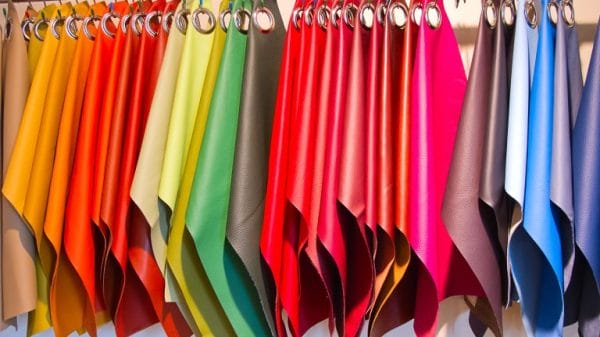Fashion trends are constantly changing, and we have seen a rise in the number of different aesthetics online. One thing is for sure, though: people want to shop more sustainably and not be tied down to gender norms. I sat down with Neha Sikder to discuss her brand, Desoire, which focuses on genderless and sustainable fashion.
Throughout history, fashion has always been a way to reflect and challenge societal norms. It is not only about the clothes we wear but has become a huge part of our self-expression. Genderless and sustainable fashion continues to become increasingly popular in an age where we continue to break down barriers. People are moving away from well-known fashion brands and onto smaller, more environmentally friendly brands, such as Neha Sikder’s Desoire.
The concept of genderless fashion
Fashion United defines genderless fashion as ‘clothing without design elements that are typically attached to one gender.’ This differs from unisex clothing, which often can still adhere to certain gender norms. Genderless fashion offers complete androgyny and inclusivity. It diminishes the body’s silhouette so that gender becomes ambiguous.
Despite seeming like a relatively modern concept, genderless fashion has existed for a while. The Romans had both men and women wearing tunics, the Japanese had kimonos for centuries, and Southeast Asia had genderless sarongs.

Big brands have been toying with the idea of breaking down gender barriers for years as well. In 1966, Yves Saint Laurent released Le Smoking, a tuxedo for women. In the 1910s, Coco Chanel gave women the option of trousers and more masculine silhouettes. While these are closer to unisex fashion rather than genderless fashion, the idea of fighting against societal norms was still prominent.
More recently, celebrities have challenged gender norms. Harry Styles famously appeared on the cover of Vogue wearing a Gucci dress. Other celebrities include Billy Porter, who portrayed a genderless fairy godmother in Cinderella (2021), and Disney Channel stars Demi Lovato and Miley Cyrus.
The importance of sustainability
There has been much more awareness of the kind of brands we consume in recent years. We have seen a huge increase in second-hand shopping, with social media making thrifting a trendy and cool activity. Consumers have a much greater awareness of where clothes are coming from and though there has always been criticism surrounding fast fashion brands, it seems that now is the time when consumers are choosing to do something about it.
‘Sustainability should be the bare minimum.’
Neha Sikder, founder of Desoire
Not only do fast fashion brands use sweatshops, where they pay very little for long hours and horrible working conditions, but they are also responsible for 10% of annual global carbon emissions. A report from WRAP, showed that buying just one white cotton shirt produces the same amount of emissions as driving 35 miles in a car.
As a result of a growing awareness of the environment, more people are shopping in charity shops. This prevents more clothes from going straight to landfill sites. People are also shopping at alternative smaller brands that describe themselves as ‘slow fashion’ or brands that use more eco-friendly fabrics such as organic cotton.
Neha Sikder’s brand Desoire
Neha Sikder is the creator of Desoire, a fashion brand dedicated to genderless and sustainable clothing. She draws on her Indian heritage, saying that she approaches designing fashion in a similar way to her ancestors, choosing to focus on ‘practicality, comfort and convenience.’ Inspired by fashion figures such as Paloma Wool and Harris Reed, she aims to create a community that empowers others to act without fear.

When asked how she created a sustainable brand, she said:
“Desoire utilizes zero-waste pattern engineering, an innovative manufacturing method that rearranges patterns to use every inch of fabric. This way of production saves around 15% of fabric than traditional production methods. We always opt for sustainable fabrics! From fabric made from beechwood to organic/recycled material, we do our very best to ensure that every fabric is produced under energy-efficient methods, built to last, and has a minimized impact. Our packaging is also completely recycled plastic that does not produce any harmful fumes.”
Neha Sikder, founder of Desoire
When asked why she chose to focus on genderless fashion, she said,
“The vast majority of ‘genderless’ fashion is masculine and boring, we wanted to show that finding femininity in genderless fashion for mainstream consumers is a completely unexplored area by large corporations.”
Challenges Desoire faces
Creating such an impactful brand has not been easy. She spoke about the backlash she received from creating a brand focused on genderless fashion:
“We often get very negative comments on what we’re doing and how crazy it sounds. But at the same time, it does make our community stronger.”
Neha Sikder, founder of Desoire
She also faced challenges when it came to finding a suitable manufacturer who supported her vision. Eventually, she found a match with her current manufacturer, which supports ethical working conditions and zero-waste pattern engineering.
Despite only being seventeen, Neha has overcome every single challenge her brand has faced. Though she has been met with people who see her age as a problem, she has proved every single one wrong. Desoire is not only a brand that has proved sustainable fashion is possible, it is an entire community dedicated to making everyone feel seen.
Desoire is a glimpse into the future of fashion. For many young people, a brand like Neha’s has made that future look far more hopeful.














